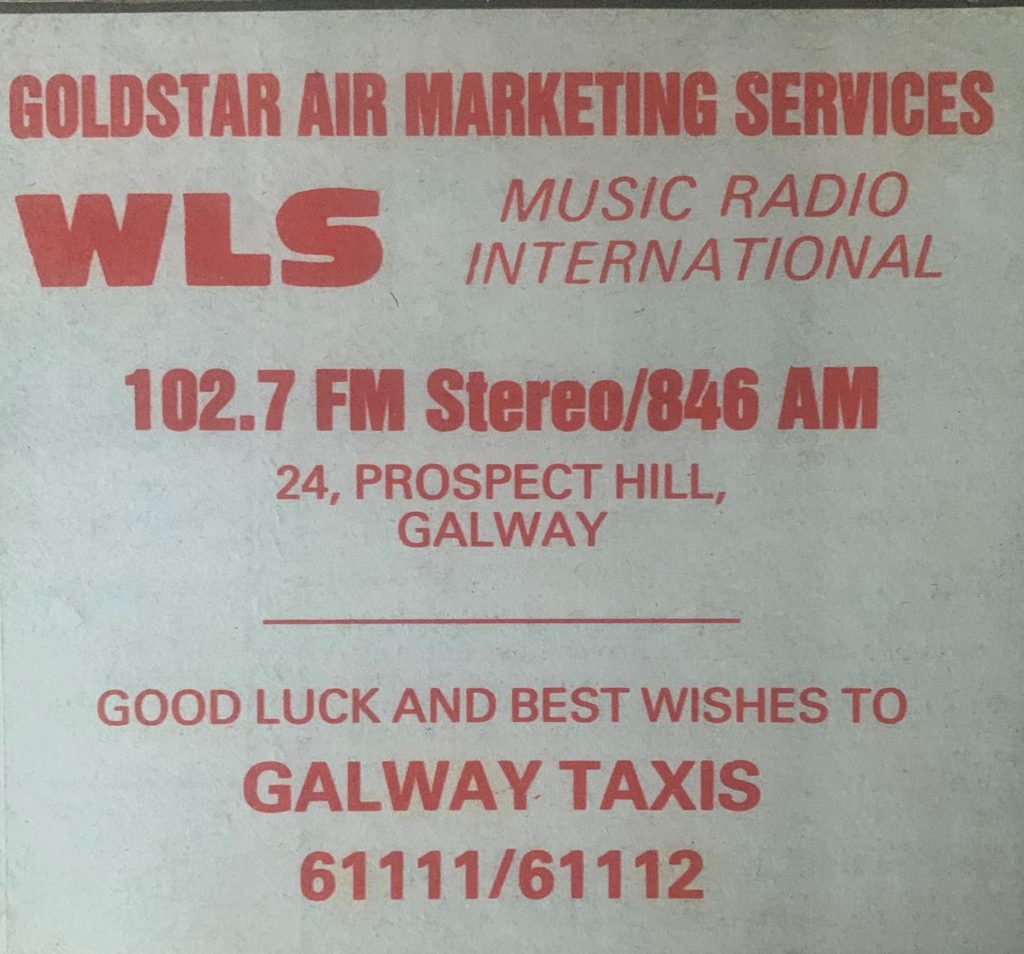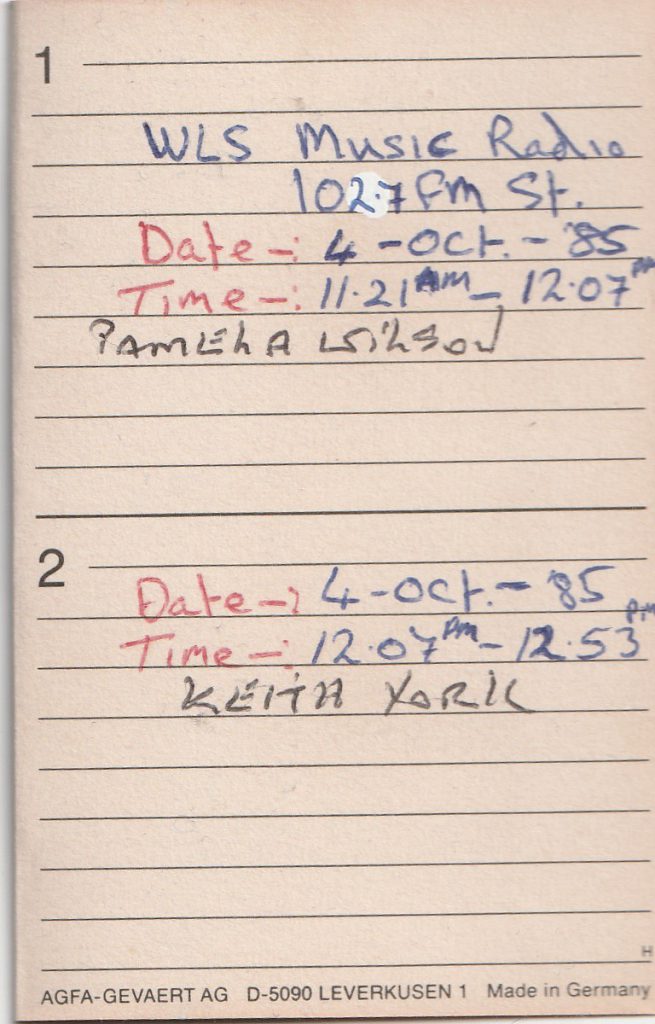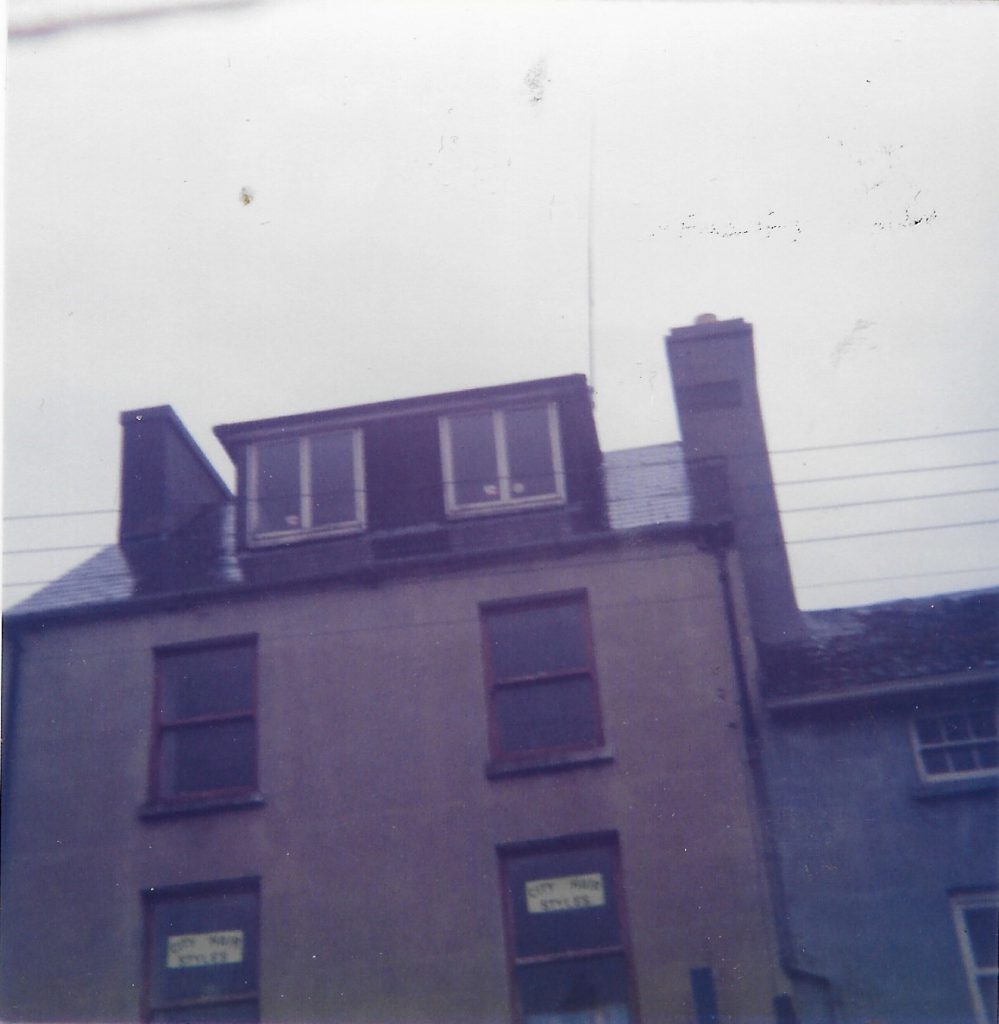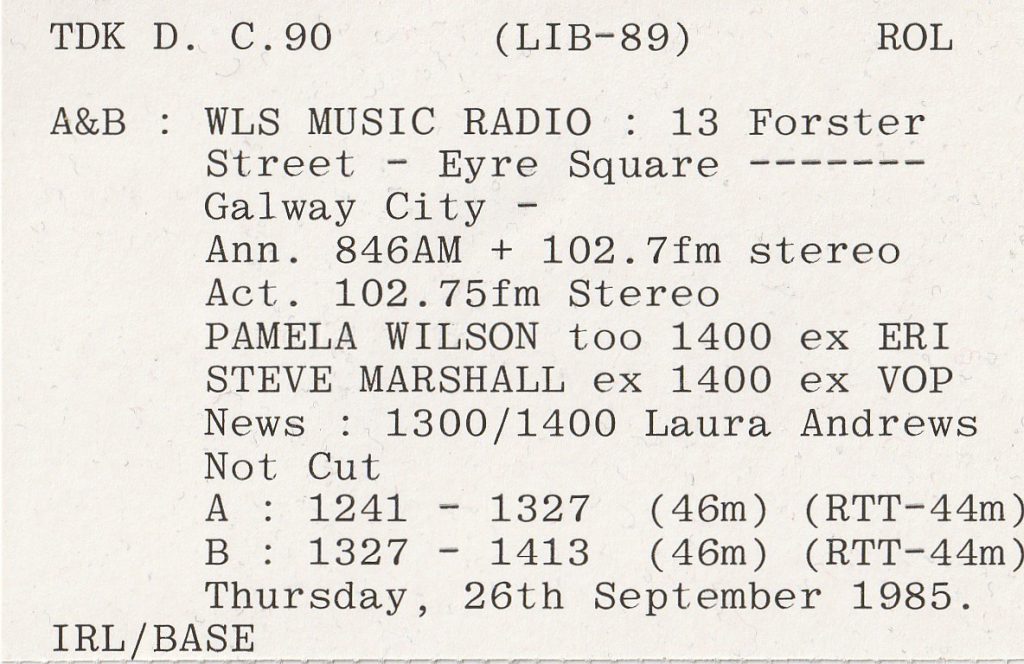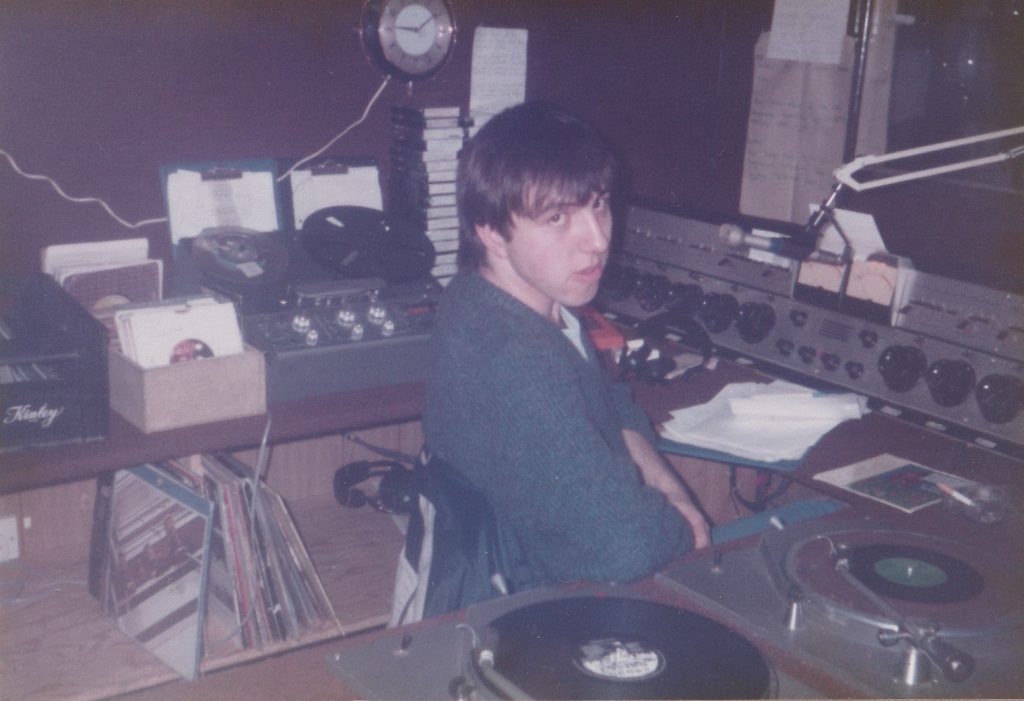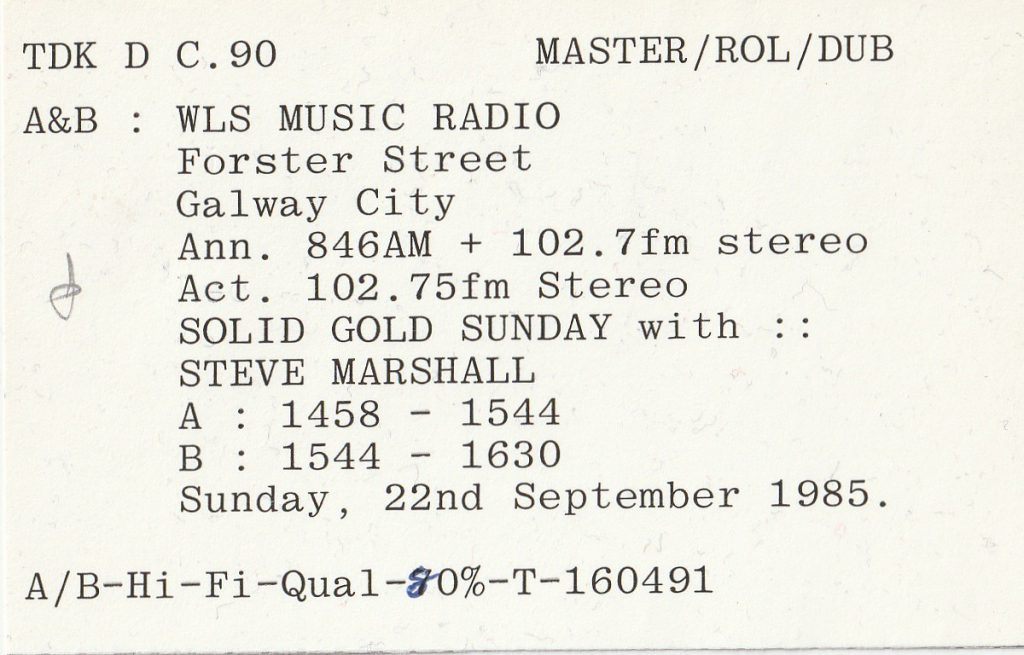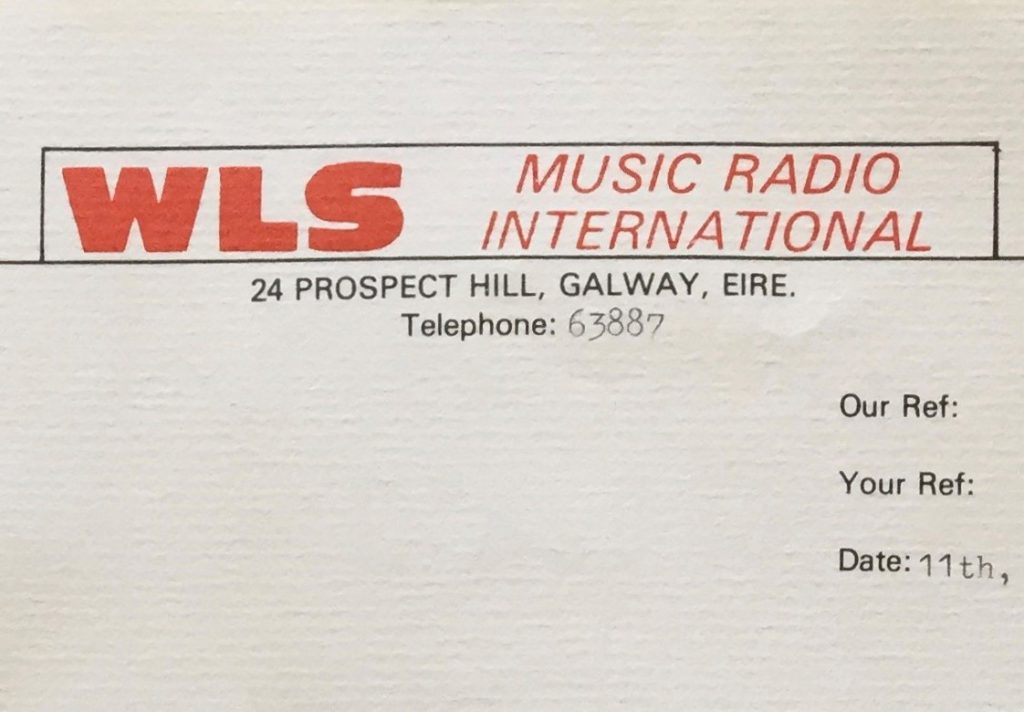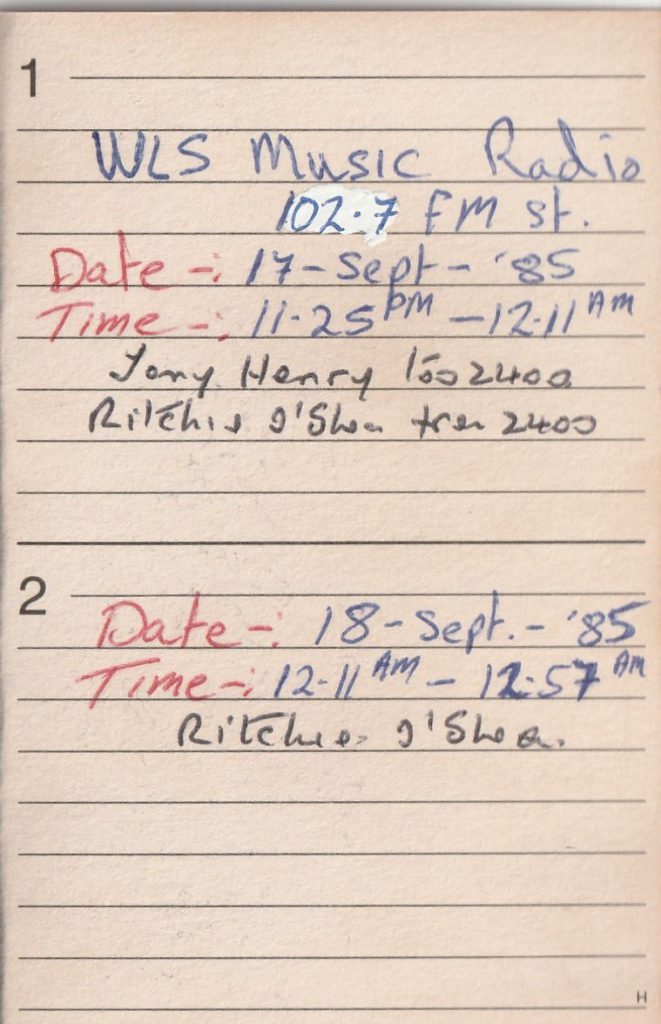Podcast: Play in new window | Download
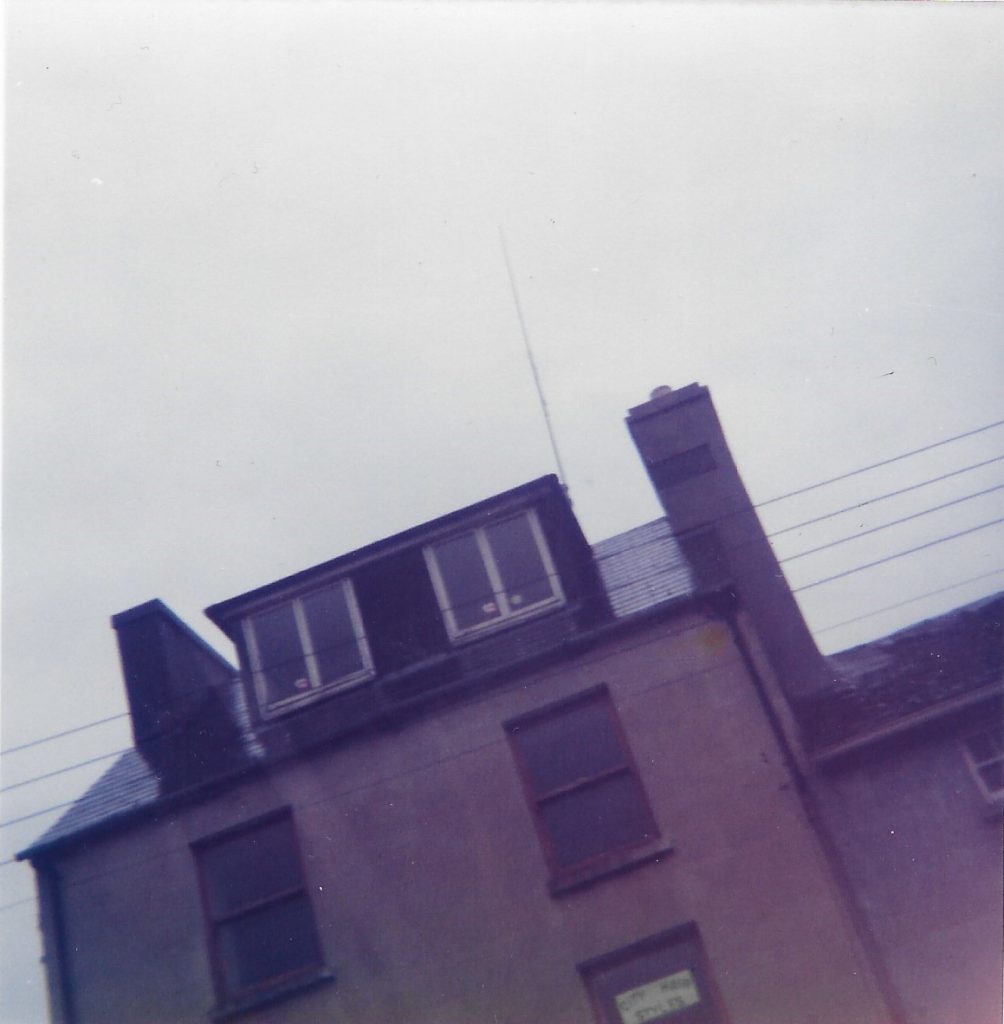
This recording of Galway pirate WLS Music Radio was made in November 1985. It begins with the final half-hour of the Sunshine Special breakfast show presented by Don Stevens, one of the station’s founders. He is followed at 1000 by Pamela Wilson, formerly of ERI in Cork. News is read by Chris Ashford and there are many adverts for local Galway businesses.
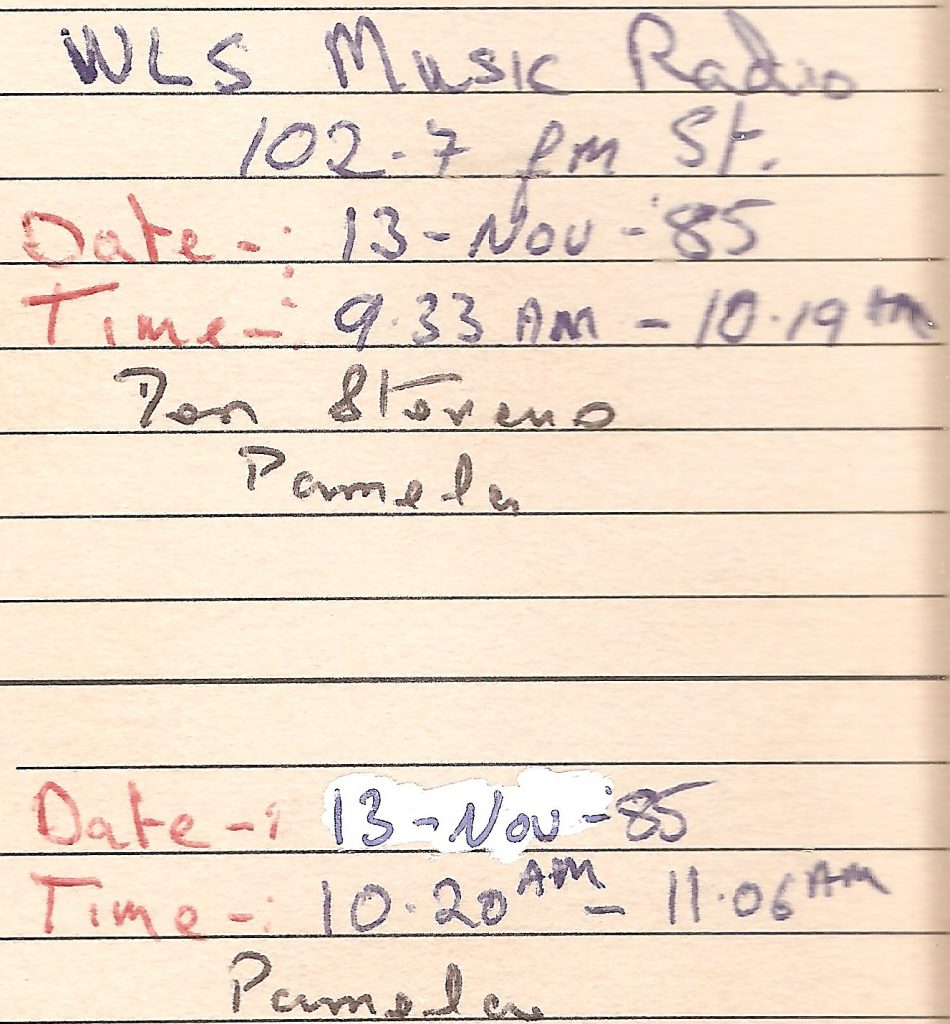
Made on 13th November 1985 from 102.7 FM, part 1 above runs from 0933-1019 and part 2 below from 1020-1106.
This recording is from the Anoraks Ireland Tapes Collection, donated to us by Paul Davidson.

